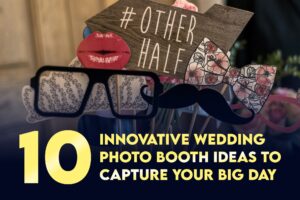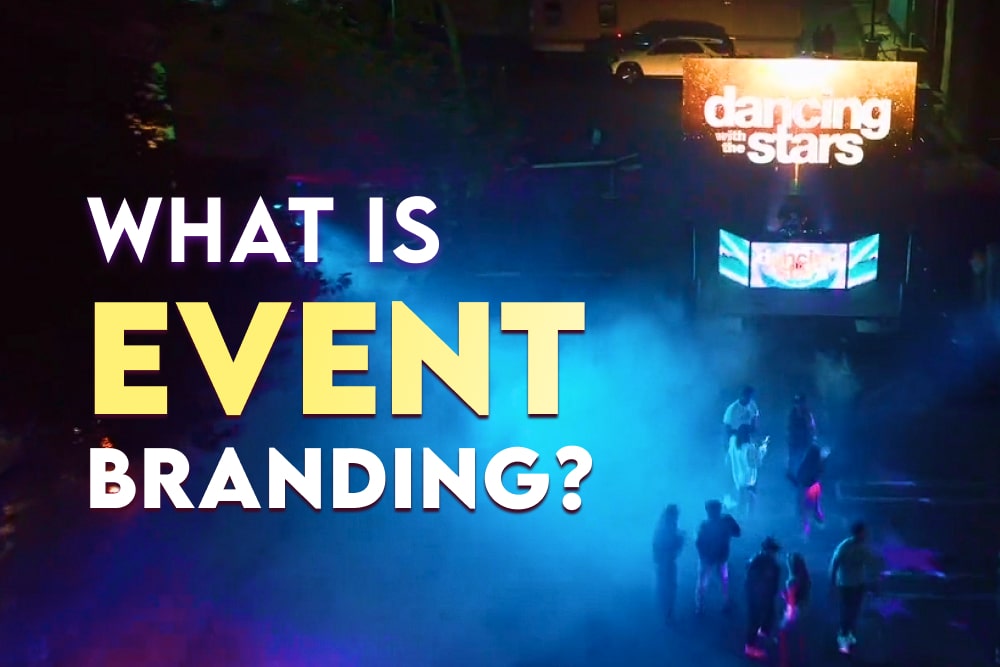

Head of HR at Rent For Event

Head of HR at Rent For Event
Effective event branding is the key to a successful event. It allows you to create a more immersive experience for your attendees that goes beyond brand promotion. This is part of a bigger marketing effort, which is a combination of on-site and digital strategies.
Whether it’s an Apple product launch or a small business offering, both require event branding. This makes the event stand out from the competition and creates more impact on its attendees.
If you’re new to this concept, we’re here to help you out. Below, we discussed what event branding is, how it benefits an event, and how you can launch your branding campaign.

Collectively, event branding is the process of creating a cohesive set of messaging, styling, and advertising for an event. It’s often overlooked as a marketing opportunity, though it holds so much power in beating your competitors.
Overall, event branding sets the face of your event. It includes comprehensive visual elements and online presence such as the following:
Whatever type of event you’re planning, event branding is indispensable. It applies to virtual, hybrid, and live events.
Creating a branded experience for event attendees has no major downsides. In fact, this strategy can directly revolutionize your turnouts and profits.
Take note that many people shy away from overly salesy event promotions. It’s not interesting and many event planners often neglect the visual aspect of their marketing.
Event branding is more than just plain vanity. By taking time to develop the visual and social appeal of your event, you will reap the following benefits:
The main purpose of event branding is to gain the trust of your audience. By giving your brand both a digital and real-life identity, your target audience will be more drawn to your event.
After all, who would want to go to an unknown event? The goal here is to put your event out there in a way that the audience will find rewarding or appealing.
Event attendees are more likely to get into your brand’s promise if they can see your credibility.
Event branding does this by generating a valuable experience for your attendees. It establishes your leadership and credibility in your specific field. Overall, event branding is the perfect way to show authority and e xpertise in your niche.
Improved brand recognition is another main role of event branding. Once your brand sticks to your target audience, you can expect a higher turnout for your event.
Take note that this benefit extends even after the event is finished. Once you have established your brand’s positioning, you can gain loyalty and confidence from you r audience.
Event planning paired with proper branding will boost your brand’s connection to your target customers. In fact, about 91% of event attendees develop positive feelings for a brand after attending their events.
This positive feeling doesn’t happen randomly or by chance. It’s the product of proper planning and cohesive marketing.
Boosting brand awareness is one thing, but generating warm leads is another story. Brand identity takes your audience directly into your sales funnel. If done right, it can convert warm leads into loyal customers.
Overall, event branding elements are more than just their face value. It plays an important role in encouraging your attendees to take purchasing actions.
Clear messaging ensures that your goal is communicated properly to your audience. Also, your method of messaging can either make or break your standing among your competitors.
Brand messaging includes the copy, font, color palette, and graphics of your choice. It’s important to choose them wisely to ensure that your event will leave a lasting impression.
Consistent branding will also attract sponsors and vendors. These people often look for brands with aligning values, messaging, and credibility with them.
This benefit goes beyond a single event; it snowballs into your company’s succeeding activities. This is why event marketing or branding should be considered a long-term effort.
Do you want to reap all these benefits? The secret is deploying the best practices in your next event.
Below are some of the most effective techniques, both in terms of digital marketing and face-to-face efforts.
Branding elements such as colors, logos, design, copy, marketing materials, and so on can all be published on a website. Through this, your attendees will have a single place to access everything about your event.
Above all, an event website is the most effective lead generator. Here, you can collect all attendee information in an organized manner. You can also direct them to sign up, purchase tickets, and perform other actions needed to achieve the goals of the event.
Email marketing is old but gold if you want to promote your event. As with your event website, you can include CTAs, valuable materials, and necessary information in your emails. Overall, this will help boost your event’s reach and communicate event details to potential attendees.
Make sure that you tap into your branding for every email that you will send. Use a defined CTA and provide information, so that your attendees will understand what the event was about.
Humans are visual beings, so it’s not surprising that video marketing can yield as much as 49% growth in a company’s revenue. Whether it’s a face-to-face or virtual event, video marketing is a great boost to your branding.
Remember that the attention span of an online audience is short, so you should keep your videos short and sweet. Also, avoid being too salesly. Instead, tell a story that your audience can relate to and will attract them to your event.
For those who are regularly hosting virtual events, an event app would be a great investment. It’s also ideal for a digital brand since it will save a lot of time on marketing. Aside from that, the app will allow you to directly and instantly communicate to your audience.
On a side note, you can make money from your event app by selling ad space. You can also use it for audience feedback, product launches, real-time updates, and more.
Social media platforms have proven to be indispensable marketing tools. For your event’s branding, you can maximize social media to connect to your audience and establish your messaging.
Use hashtags, real photos, videos, and links to your website to keep the conversation going. Overall, you should be consistent with the type of content you’re putting out to avoid confusing your audience.
Aside from building your online presence, event branding should also extend to your actual venue. You should use your brand graphics on your event signage, displays, maps, digital kiosks, and so on.
The visual elements of your brand are best displayed using a LED wall background on the stage. You can also use television screens all over the venue to show branding materials. Gobo lighting can also illuminate your logo during the event.
You can infuse your branding into your event collateral. For example, you can print your brand logo into beverage cans or cups.
You can also develop a swag filled with take-home goodies from your event. All the items must be branded, including the tote bag. Just make sure that the items inside the swag are relevant to your event.
Your event will stand out with the right branding techniques. It will also increase brand awareness, which will ultimately lead to higher revenue.
For it to be effective, event branding must focus on a positive audience experience. Through that, you can encourage them to explore your brand without being too salesy.